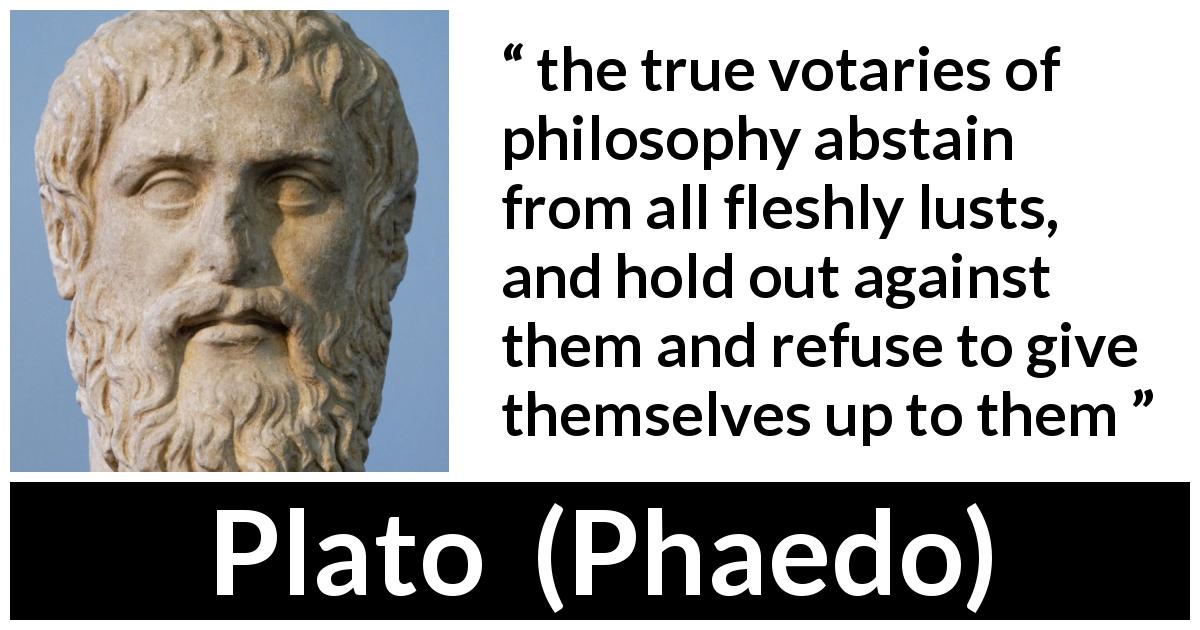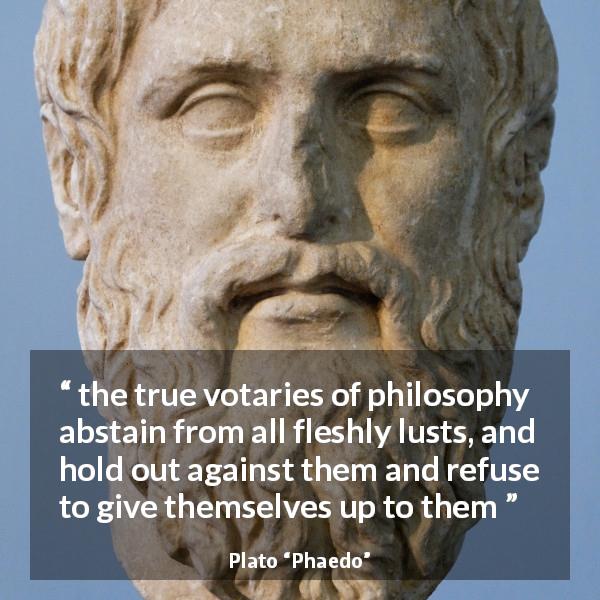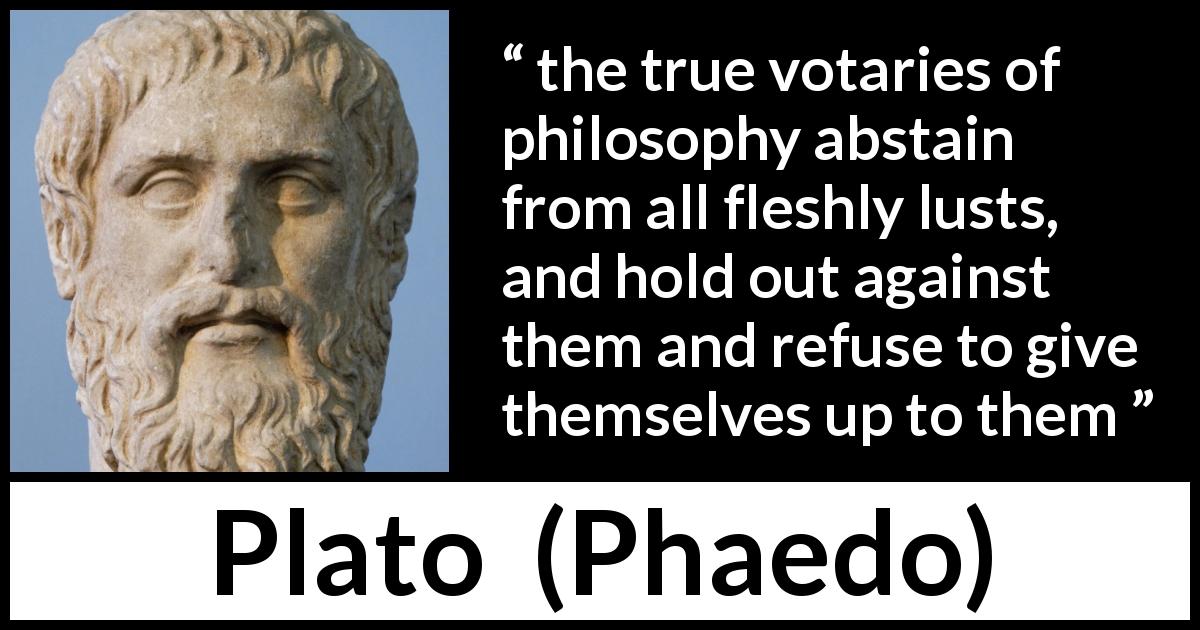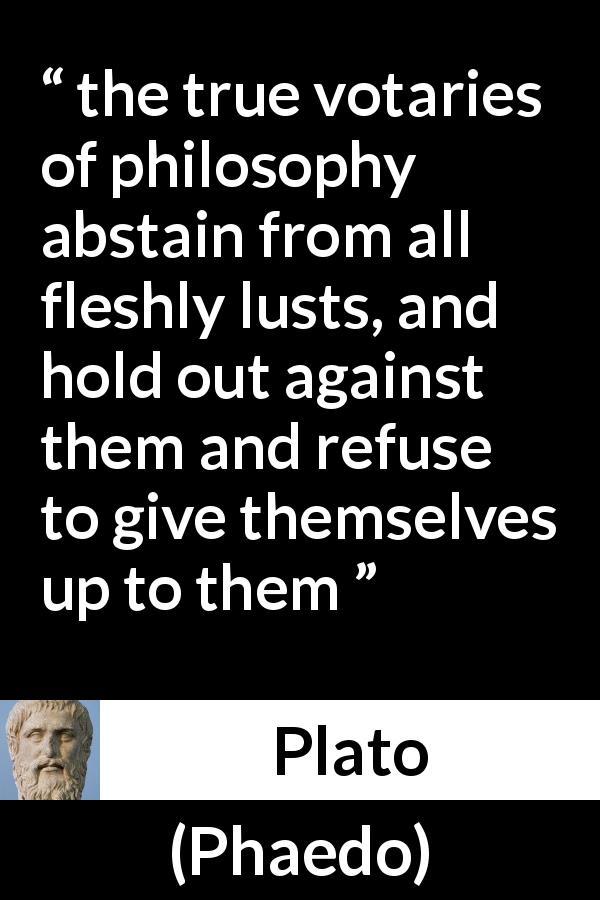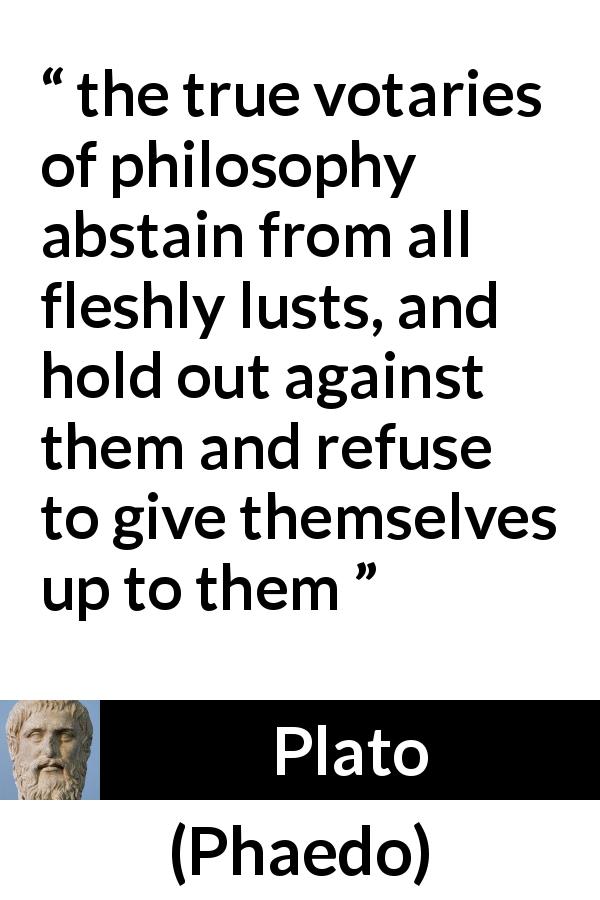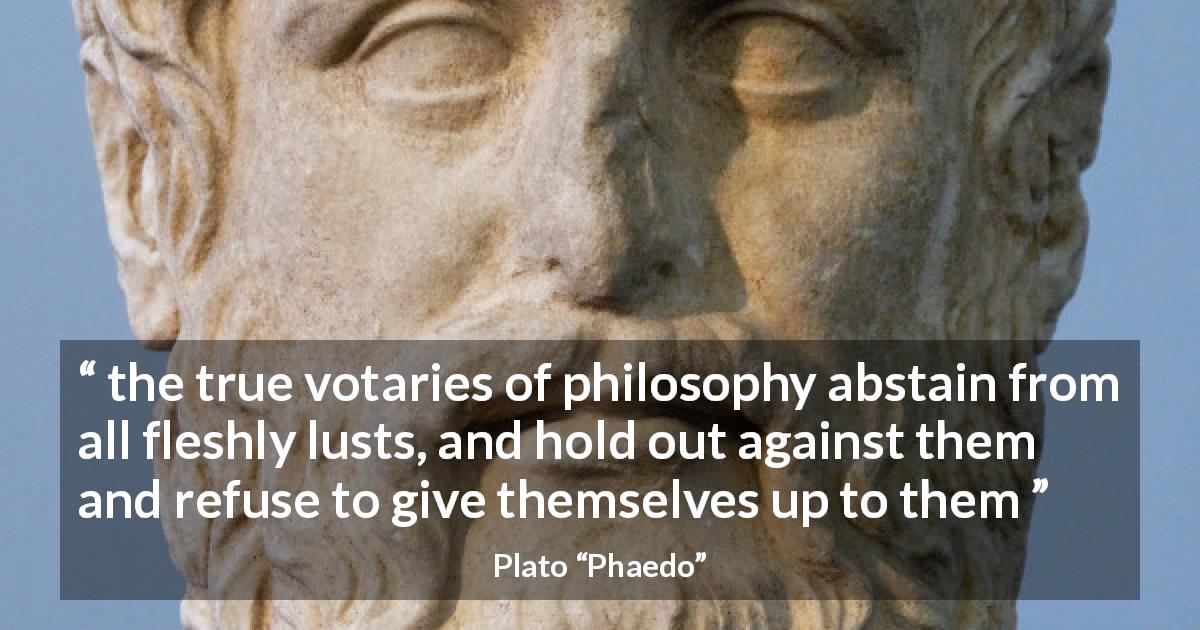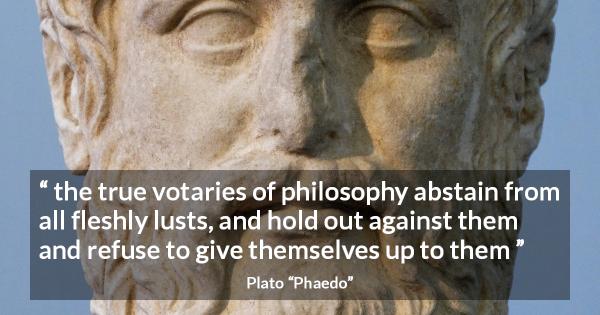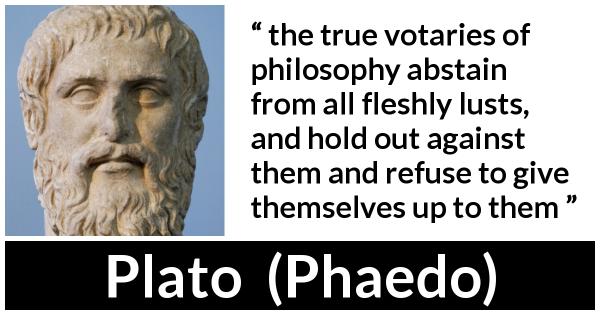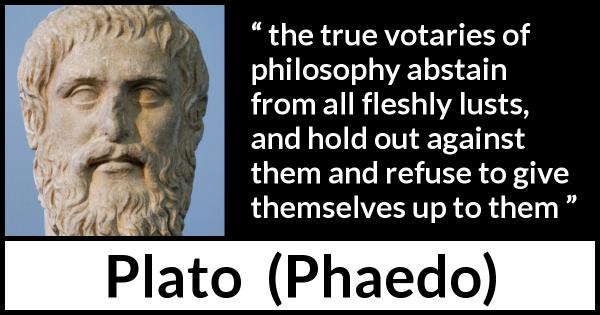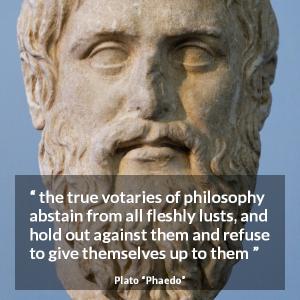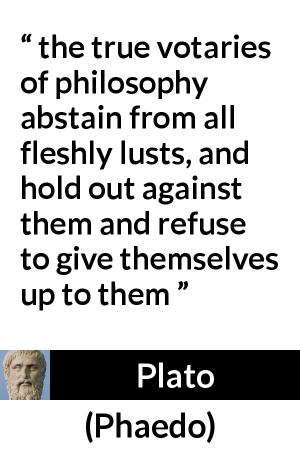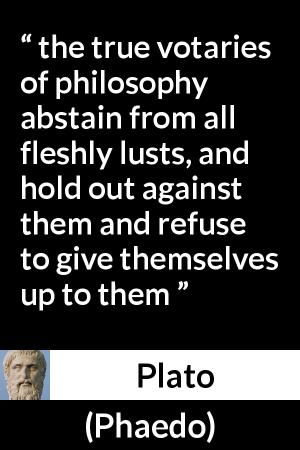“ the true votaries of philosophy abstain from all fleshly lusts, and hold out against them and refuse to give themselves up to them ”
Plato, Phaedo. copy citation
| Author | Plato |
|---|---|
| Source | Phaedo |
| Topic | philosophy lust flesh |
| Date | |
| Language | English |
| Reference | |
| Note | Translated by Benjamin Jowett |
| Weblink | http://www.gutenberg.org/files/1658/1658-h/1658-h.htm |
Context
“Because they may be expected to pass into some gentle and social kind which is like their own, such as bees or wasps or ants, or back again into the form of man, and just and moderate men may be supposed to spring from them.
Very likely.
No one who has not studied philosophy and who is not entirely pure at the time of his departure is allowed to enter the company of the Gods, but the lover of knowledge only. And this is the reason, Simmias and Cebes, why the true votaries of philosophy abstain from all fleshly lusts, and hold out against them and refuse to give themselves up to them,—not because they fear poverty or the ruin of their families, like the lovers of money, and the world in general; nor like the lovers of power and honour, because they dread the dishonour or disgrace of evil deeds.
No, Socrates, that would not become them, said Cebes.
No indeed, he replied; and therefore they who have any care of their own souls, and do not merely live moulding and fashioning the body, say farewell to all this; they will not walk in the ways of the blind: and when philosophy offers them purification and release from evil, they feel that they ought not to resist her influence, and whither she leads they turn and follow.” source
Very likely.
No one who has not studied philosophy and who is not entirely pure at the time of his departure is allowed to enter the company of the Gods, but the lover of knowledge only. And this is the reason, Simmias and Cebes, why the true votaries of philosophy abstain from all fleshly lusts, and hold out against them and refuse to give themselves up to them,—not because they fear poverty or the ruin of their families, like the lovers of money, and the world in general; nor like the lovers of power and honour, because they dread the dishonour or disgrace of evil deeds.
No, Socrates, that would not become them, said Cebes.
No indeed, he replied; and therefore they who have any care of their own souls, and do not merely live moulding and fashioning the body, say farewell to all this; they will not walk in the ways of the blind: and when philosophy offers them purification and release from evil, they feel that they ought not to resist her influence, and whither she leads they turn and follow.” source
